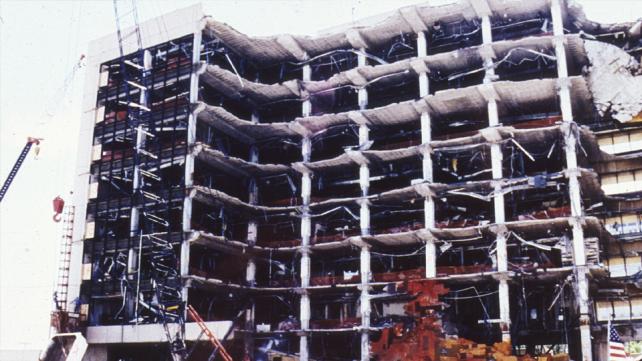
For someone whose name was going to be "peace", Salam died under violent circumstances.
It had been barely 24 hours after the terrorist attack on the Alfred P. Murrah federal building in Oklahoma City on April 19, 1995. In the wake of the shock and pain of seeing employees, and most heartbreakingly, children from the daycare there, being carried out covered in blood, came the fury at the attackers.
And Salam was probably the youngest person ever to experience it. He was still in the womb, a few short weeks away from birth.
As the search for survivors and loved ones amid the building's rubble began, so did the search for those responsible. Before any proof could be found, came the accusation, hardly hours after the bombing: It had to be a Muslim, it had to be an Arab. That was the mantra of talking heads on the news channels. Which is why Salam and his family became targets.
A group of angry residents surrounded their home. They possibly guessed the family was Muslim because Salam's mother, Sahar Al-Muwsawi, wore Hijab. And all Muslims in their eyes were already guilty.
First began the screaming, the hollering, the usual anti-Muslim epithets. Then came the stones, smashing Sahar’s living room windows, shattering her sense of security.
She raced to the bathroom and locked herself in with her daughter and another child she was caring, both of whom were screaming in fear. She was no doubt praying, as she cowered and feared the worst, not just for herself, but the children and her baby, the one whose name was to be "peace", the one she had been carrying for seven months.
Sahar started bleeding during the attack on her home and a few hours later, after the angry criminals had left, she was raced to the hospital. Amid shock and grief she delivered him.
It was too late. Salam was already dead.
Every year, I remember Salam on April 19. He would have been 24 years old this year. Perhaps he would have been in graduate school. Maybe he would already be working, doing all the things a young American looking forward to a bright future does. Except that this was not meant to be.
I’m sure the parents of the other children who died that day imagine what their babies would have been like, just as Salam’s parents do. In daycare then, they would have been studying or working today also, enjoying their first taste of life on their own, finding a job, a place to live, love. They would have been tangible, just a phone call, text, email or drive away. The killers of Oklahoma City made them intangible. They, like Salam, can never be kissed, hugged, consoled, cajoled, scolded, argued with, or loved. At least in this world.
Like them, Salam would have been looking forward. But unlike them, he would most likely have also experienced what a growing number of American Muslims do daily, in countless ways: Islamophobia.
If Salam had lived, he may have been told the story of his violent birth. Then again, maybe not. Most parents shield their children from such painful memories and share only their joy.
But Salam would still have come face to face with Islamophobia in first grade, barely weeks after school started, when the 9/11 attacks happened. Like other children of his age at the time, he may have drawn pictures of burning buildings, airplanes, mayhem, murder, and horror. He may also have had nightmares of his whole family being killed, along with himself, in a similar fashion.
Salam would most likely also have accustomed himself to the glares, the swear words, the curses, and insults, hurled at him on the street, maybe even at school, in the aftermath of 9/11. Kids who called him "terrorist", "sand ni***r", and his mother "raghead" for the being Muslim and Arab.
With bullying becoming a growing problem at schools across the U.S., Salam may have also experienced his share of it. Post-9/11, the election of Donald Trump ushered in a new, more virulent wave of Islamophobia. Salam may have felt the need to hide his Muslim identity, in an America where being Muslim had become the equivalent of being a pariah - especially when the leader of your country describes you as such.
Realizing this, perhaps Salam would have changed his beautiful name to something more “normal”-sounding, as a growing number of Muslims have and continue to do to spare themselves discrimination and reproach. Maybe to Sal.
But amid this pain, he would, I hope, have befriended the good kids, the good neighbors, the good people, the ones who would defend him from abuse, help shield him from ridicule, and stand up for his beliefs when he may have been too scared to. I hope he would have retained his faith in others and in his country with the knowledge that not everyone holds you responsible for odious acts you would never even think of committing; that being a Muslim is not a crime any more than being an evangelical Christian, Jew, Hindu, Buddhist or atheist is in America.
If Salam had lived, only God knows what his future would have held. He was one of the first victims of modern-day Islamophobia, and possibly its youngest. But through his death, we can remember that the fight against intolerance in America, this time with Muslims as its primary targets, is hardly over. And the Islamophobia that very likely cost Salam his life is sadly no longer an exception. It is slowly becoming a rule that Muslims and all Americans of good faith must urgently challenge.
Photo Attribution: http://commons.wikimedia.org/wiki/File:FEMA_-_1545_-_Photograph_by_FEMA_News_Photo_taken_on_04-26-1995_in_Oklahoma.jpg

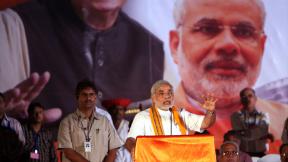
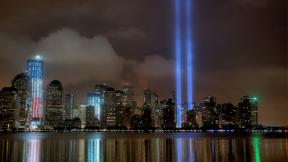
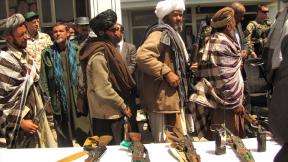
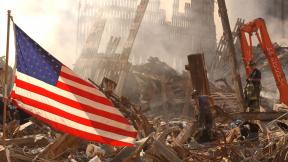
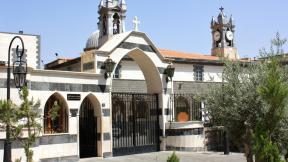


Comments
Great sad memory
Location
Add new comment